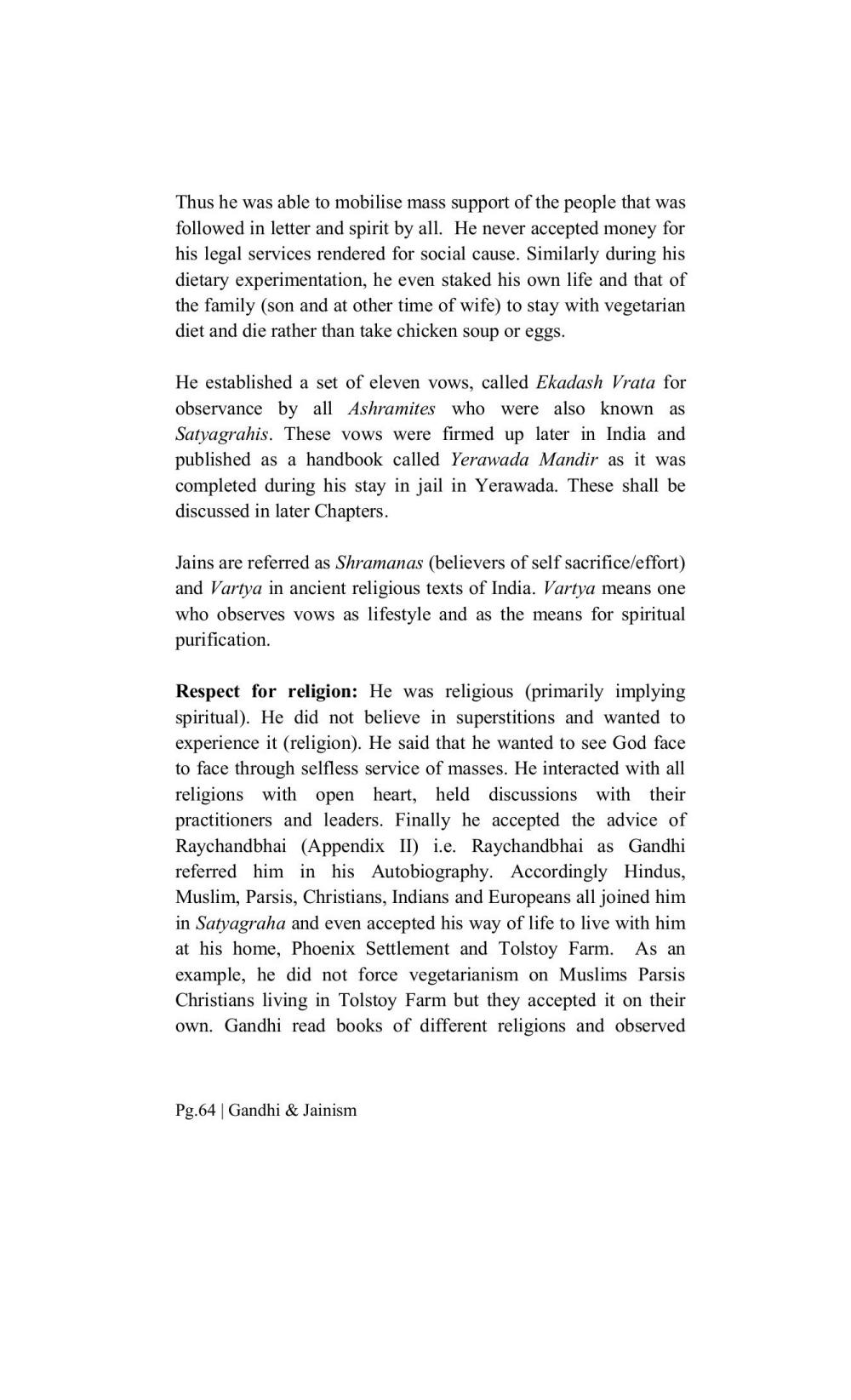________________
Thus he was able to mobilise mass support of the people that was followed in letter and spirit by all. He never accepted money for his legal services rendered for social cause. Similarly during his dietary experimentation, he even staked his own life and that of the family (son and at other time of wife) to stay with vegetarian diet and die rather than take chicken soup or eggs.
He established a set of eleven vows, called Ekadash Vrata for observance by all Ashramites who were also known as Satyagrahis. These vows were firmed up later in India and published as a handbook called Yerawada Mandir as it was completed during his stay in jail in Yerawada. These shall be discussed in later Chapters.
Jains are referred as Shramanas (believers of self sacrifice/effort) and Vartya in ancient religious texts of India. Vartya means one who observes vows as lifestyle and as the means for spiritual purification.
Respect for religion: He was religious (primarily implying spiritual). He did not believe in superstitions and wanted to experience it (religion). He said that he wanted to see God face to face through selfless service of masses. He interacted with all religions with open heart, held discussions with their practitioners and leaders. Finally he accepted the advice of Raychandbhai (Appendix II) i.e. Raychandbhai as Gandhi referred him in his Autobiography. Accordingly Hindus, Muslim, Parsis, Christians, Indians and Europeans all joined him in Satyagraha and even accepted his way of life to live with him at his home, Phoenix Settlement and Tolstoy Farm. As an example, he did not force vegetarianism on Muslims Parsis Christians living in Tolstoy Farm but they accepted it on their own. Gandhi read books of different religions and observed
Pg.64 Gandhi & Jainism




